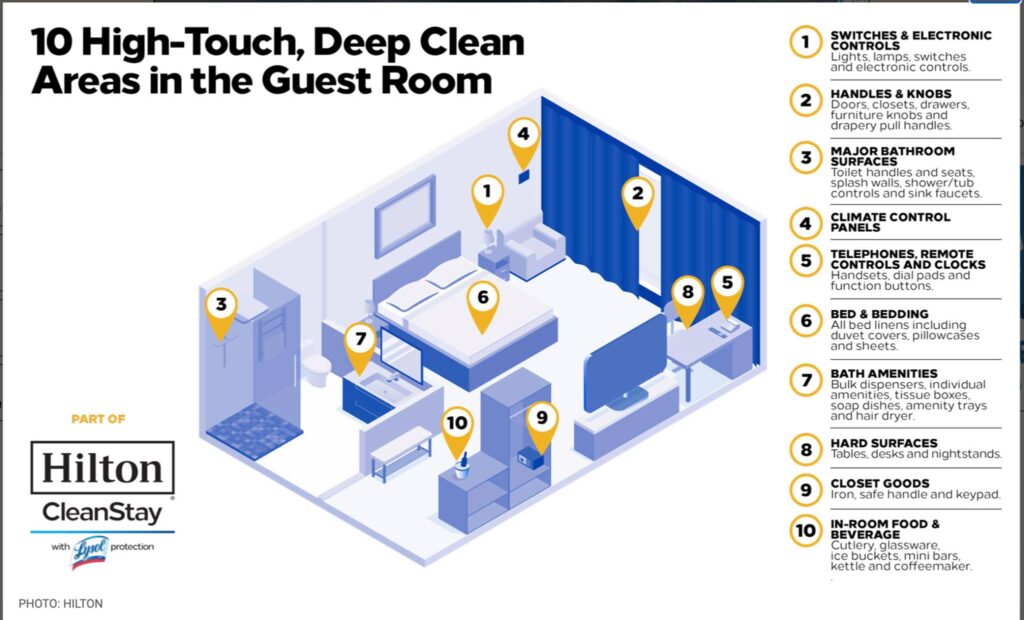A: Yes! Three key things to remember (beyond the always-applicable WASH THE HECK OUT OF YOUR HANDS and wear a mask):
(1) Ask about infection control protocols before booking;
(2) Beware high-touch surfaces and public spaces;
(3) Time is your friend – if at all possible, try to find a booking that will have a buffer of a few unoccupied days prior to your stay.
Perhaps the most important thing to keep in mind is that WHERE you stay isn’t likely to be the biggest driver of travel-related risk. As infectious disease physician Dr. Thomas Russo cautions, the key risk variables involve “what you decide to do on that vacation…how many people you come in contact with and what part of the world you’re in.”
Additional tips/resources specific to hotel and vacation rentals:
Hotels
(1) Minimize time in public spaces (e.g. elevators, stairwells)
(2) Avoid high-touch surfaces if possible; feel free to wipe down “hot spots” upon room arrival (this Hilton picture provides a handy “map” that you can bring along with you!)
(3) Substitute tech for touch whenever possible (e.g. opt for keyless entry via smart phone check-in)
(4) Book at a hotel abiding by the new “Safe Stay” industry standards developed by the American Hotel and Lodging Association (url below)
And in the wise words of Professor Christopher Anderson, faculty member at Cornell’s famed School of Hotel Administration, “No buffets, no mini-bars.” (quoted via CNN, article link below)
Vacation rentals (VRBO, AirBnB)
(1) Establishing a line of trust/communication with the owner is imperative. Ask if they are following the AirBnB cleaning guidelines (see Today article, link below).
(2) As pediatric infectious disease professor Dr. Andrew Janowski notes, the “biggest and most under-appreciated weapon renters have against coronavirus is time…the longer the home has been unoccupied, the better….after about three days the risk is exceedingly small.”
(3) Guidance regarding high-touch surfaces applies here, too: When you arrive, wipe them down.
In summary, it’s all about minimizing risk, even if you can’t entirely eliminate it. As Dr. Russo helpfully mentions, “We can’t make the risk go to zero, so you have to pick and choose your risk battles.”
Links:
AHLI “Safe Stay” industry standards
Today article on safe vacation rental stays



